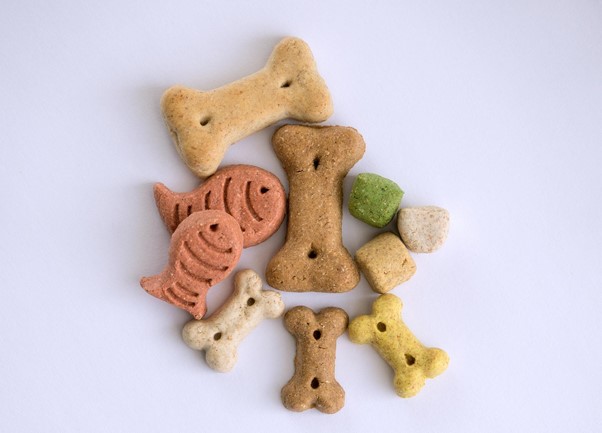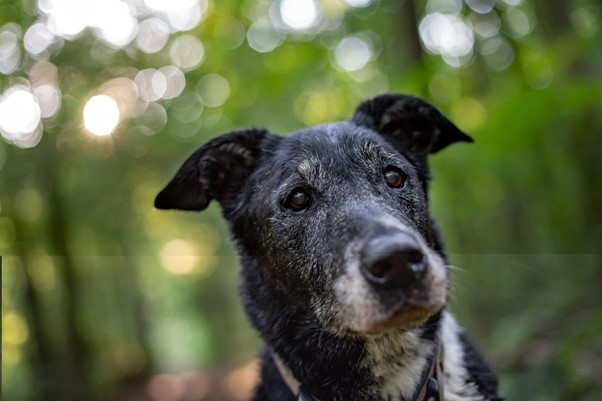The Essential Guide to Maintaining Good Dental Health in Dogs
- Last updated on April 6, 2023
- By: Caroline Stowe
Good dental hygiene is essential for a healthy, happy dog. Unfortunately, far too many dog owners overlook the importance of caring for their pet’s teeth and gums. This can lead to serious oral health issues such as bad breath, gum disease, tooth decay, tooth loss, and even infections in other parts of the body.
But it doesn’t have to be this way! With just a few simple steps, you can keep your pup’s mouth healthy and clean without having to visit the vet every month or spend countless hours brushing their teeth.
In this guide, we’ll discuss everything you need to know about maintaining good oral hygiene in dogs – from proper diet and nutrition tips to easy at-home cleaning methods that will help keep your pup’s pearly whites sparkling all year round!
Diet and Nutrition Tips for Maintaining Good Dental Health
A healthy diet is an essential part of keeping your pup’s teeth and gums healthy. Make sure to feed your dog a balanced diet that consists of high-quality, nutritious foods. This can help keep their teeth and gums strong and reduce the chances of plaque buildup. Also, avoid giving your dog any table scraps as they may contain sugar and other ingredients that can harm their teeth.

In addition to a healthy diet, make sure to give your pup plenty of chew toys or treats designed specifically for dental health. These products are specially formulated to help reduce plaque buildup and freshen breath while providing essential nutrients to your pup’s teeth and gums.
Additionally, providing fresh water daily will also help keep their teeth clean and healthy.
Brushing Your Dog's Teeth
Brushing your dog’s teeth daily is the best way to keep their teeth and gums healthy. Regularly brushing your dog’s teeth can help reduce plaque buildup and reduce the risk of gum disease and bad breath. It is essential for maintaining good dental health.

Thankfully, it doesn’t have to be a difficult or time-consuming task. With the right tools and techniques, you can make brushing an enjoyable experience for both you and your pup.
How To Keep Your Dog's Teeth Clean and Healthy
Start by selecting a toothbrush that is designed for dogs, as well as toothpaste specifically formulated for pets. Then, using gentle strokes and circular motions, brush your pup’s teeth in the same way you would your own. Make sure to get all four sides of each tooth, spending extra time on the back molars and canines.
Once you’ve finished brushing, reward your pup with a treat and plenty of praise to help them associate toothbrushing with positive reinforcement. With consistent practice, you should have no trouble keeping your dog’s teeth clean and healthy!
How often to brush your dog's teeth?

Remember, dental health is key to overall good health, so don’t forget to brush those pearly whites daily! If you can’t brush your dog’s teeth every day, at least try to do it a few times per week.
If you are still not sure how to go about brushing your dog’s teeth then talk to a veterinarian for advice on the best products and techniques. With patience and consistency, you can get your pup used to having their teeth brushed and it can become part of their daily routine!
When to Visit the Vet for Professional Cleanings
Although brushing your dog’s teeth daily is an important part of maintaining good dental health,
you should also have your vet examine your dog’s teeth annually and have professional cleanings done at least once or twice a year.
Plaque and tartar are bad for your dog’s teeth. Tartar is a hardened form of plaque that is difficult to remove without professional cleaning. Plaque bacteria can form and harden on the teeth, causing irritation to the gums. This can lead to red and swollen gums, receding gums, bad breath, and even tooth loss.

A professional cleaning will allow the vet to get a better look at your pup’s oral health and can help remove any built-up plaque and tartar. It can help detect any early signs of gum disease or tooth decay, which can then be treated before they worsen.
Professional cleaning of a dog’s teeth is an important part of taking care of your pet’s dental health. During a professional cleaning, your veterinarian will thoroughly examine your dog’s teeth and gums for any signs of decay or disease.
They may also use an ultrasonic tool to remove plaque and tartar buildup as well as polish the teeth. Professional cleanings can help keep your pet’s mouth healthy and free from infection.
Veterinary anesthesia is often used during dental cleanings in order to keep the dog comfortable and pain-free during the procedure.
Cavities in dogs are rare, but they can still happen. If you notice brown or yellow discoloration on your dog’s teeth, it might be a sign of decay and should be checked out by your vet.
Your vet may recommend radiographs to determine the extent of the damage and treatment options. Cavities are caused by bacteria in the mouth that feed on sugary, starchy foods and can be prevented by brushing your dog’s teeth regularly.
Additional Tips on Oral Hygiene for Dogs
In addition to brushing your pup’s teeth and scheduling professional cleanings, there are a few other ways you can help keep their oral health in check.
First, make sure your dog is fed a balanced, high-quality diet. Avoid giving them table scraps or any sugary treats as this can increase the risk of cavities and other dental problems.
Also, look for vet-approved dog treats that are specifically designed to help reduce plaque buildup on your pup’s teeth.

Finally, be sure to inspect your pet’s mouth regularly for any signs of infection or decay. If you notice anything unusual, such as bad breath, red or swollen gums, changes in chewing habits, or excessive drooling, visit the vet for an examination.
Conclusion
Caring for your dog’s teeth is also important for their overall health because an unhealthy mouth can cause bacteria to enter the bloodstream and travel to other parts of the body. This can increase your pet’s risk for heart, liver, and kidney diseases.
With regular brushing and professional dental care, your pup can enjoy healthy teeth for years to come. By following the right care routine and having regular visits to the vet, you can keep your pup’s teeth healthy and avoid costly dental problems down the line!
-
Author: Caroline Stowe
- Updated on April 6, 2023
Disclaimer: This article doesn’t intend to replace professional veterinary advice, nor should it be used as a substitute for veterinary services, diagnosis, or treatment. The content on this website, including information and opinions expressed herein, are intended for general informational purposes only. In case you have concerns or questions regarding your dog’s health and diet requirements, please consult your veterinarian before doing anything that might affect it.
DogPetGuide.com and the writer are not responsible or liable for any damage, liability, costs, or claims arising from any possible consequences of the reader’s action after reading this article.




